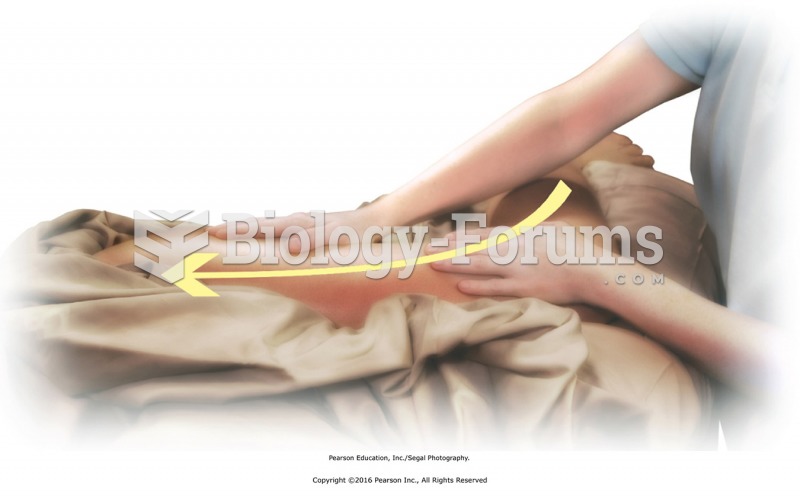|
|
|
Over time, chronic hepatitis B virus and hepatitis C virus infections can progress to advanced liver disease, liver failure, and hepatocellular carcinoma. Unlike other forms, more than 80% of hepatitis C infections become chronic and lead to liver disease. When combined with hepatitis B, hepatitis C now accounts for 75% percent of all cases of liver disease around the world. Liver failure caused by hepatitis C is now leading cause of liver transplants in the United States.
Asthma attacks and symptoms usually get started by specific triggers (such as viruses, allergies, gases, and air particles). You should talk to your doctor about these triggers and find ways to avoid or get rid of them.
Aspirin may benefit 11 different cancers, including those of the colon, pancreas, lungs, prostate, breasts, and leukemia.
Medication errors are more common among seriously ill patients than with those with minor conditions.
Computer programs are available that crosscheck a new drug's possible trade name with all other trade names currently available. These programs detect dangerous similarities between names and alert the manufacturer of the drug.
 The role of Hox genes 9–13 in specifying limb formation from the proximal to distal
The role of Hox genes 9–13 in specifying limb formation from the proximal to distal
 Compared to a chimpanzee, the human newborn has relatively little room to spare as it passes through
Compared to a chimpanzee, the human newborn has relatively little room to spare as it passes through
 Buddhist philosophy allows for the idea of reincarnation, as the self passes from body to body. The ...
Buddhist philosophy allows for the idea of reincarnation, as the self passes from body to body. The ...




